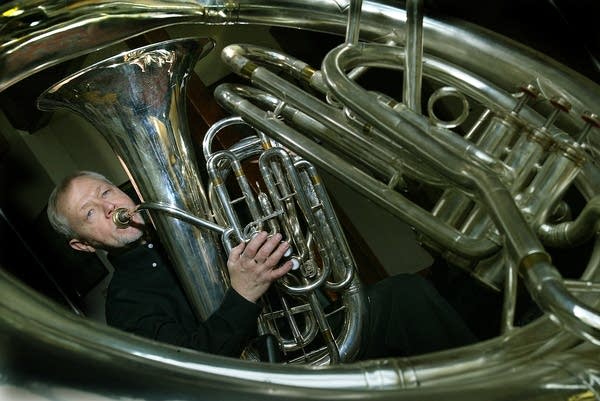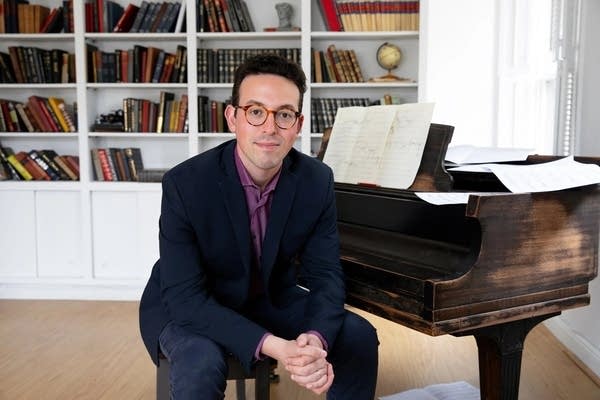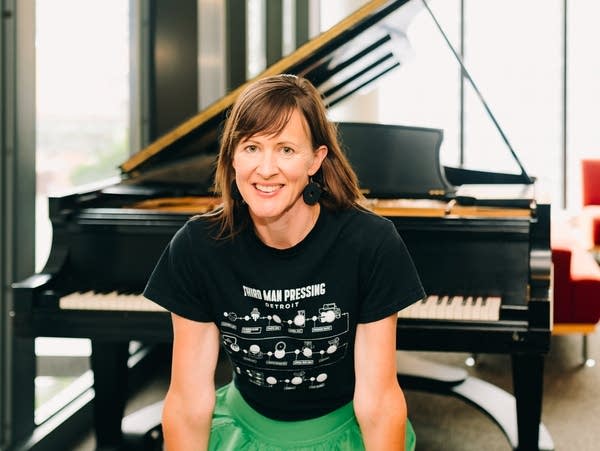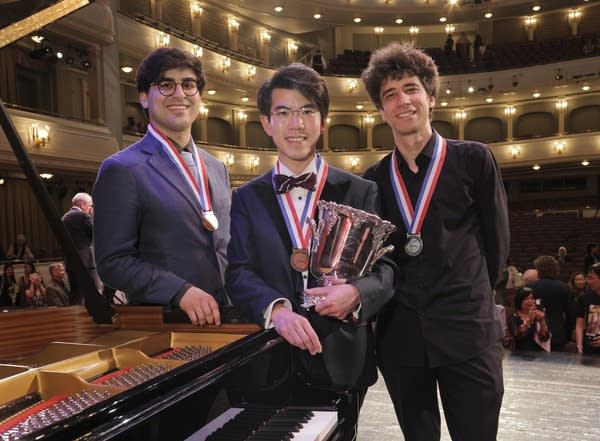The first time you heard certain pieces of classical music might not have been in a concert hall or from your parents’ record collection, but as theme songs to TV shows. You might only associate the music with these shows, even after hearing it in other contexts. Here are 10 of the best classically sourced TV themes.
‘The Lone Ranger’ (1949-57)
Perhaps the most famous theme on this list, the trumpet-propelled finale of Gioachino Rossini’s biggest hit, William Tell Overture, is indelibly associated with the masked man. (And who was he, anyway?) It was an inspired choice that evoked the Wild West and instantly set the tone. Hi-Yo, Silver!
’Alfred Hitchcock Presents’ (1955-65)
Good evening. Tonight we bring you a funereal and eerie tune by Charles Gounod called Funeral March of a Marionette. It was suggested to Hitchcock by his frequent musical collaborator Bernard Herrmann, a man who knew a little bit about creating suspense through music to classics such as Psycho. You’ll never hear it without visualizing Hitch’s distinctive silhouette (and self-drawn caricature).
’The Green Hornet’ (1966-67)
What better theme for a hornet than the feverish fugue Flight of the Bumblebee, by Nikolai Rimsky-Korsakov? Originally used for the radio series of the 1930s-’50s, it became so strongly identified with The Green Hornet that it was kept for the TV version, with a jazzy arrangement featuring trumpeter Al Hirt.
’Firing Line’ (1966-99)
The crisp trumpets of Johann Sebastian Bach’s well-loved Brandenburg Concerto No. 2 fit William F. Buckley’s patrician and persnickety persona, lending an air of high class to the political sparring of this long-running public affairs show.
‘Monty Python’s Flying Circus’ (1969-74)
John Philip Sousa’s The Liberty Bell March has been played at many presidential inaugurations and other stately celebrations, but to our ears its playful and almost vaudevillian tone is more perfectly suited to the zany British comedy troupe Monty Python. Terry Gilliam chose it because it was in the public domain, allowing him to augment it with the irreverent whoopee cushion effect at the end of the show’s title sequence.
‘The Dick Cavett Show’ (1968-69; 1977-82)
The snippet of “Glitter and Be Gay” from Leonard Bernstein’s opera Candide is the ideal marriage of sophisticated music and urbane talk-show host. Originally featured as in-show music during his late-night show on ABC in the late 1960s, Cavett decided on it as the main theme for his later show on PBS, too.
‘Reilly, Ace of Spies’ (1983)
The lush, string-driven movement “Romance,” from Dmitri Shostakovich’s The Gadfly Suite, introduces us to the eponymous Russian adventurer and British spy Sidney Reilly, played by Sam Neill, in this 12-episode British TV program. Why “Romance”? Reilly was as well-known for his ways with women as his cloak-and-dagger exploits.
The Apprentice U.K. (2005-present)
Despite its provenance, there’s little love in the ponderous and bombastic music of “Dance of the Knights” from Sergei Prokofiev’s Romeo and Juliet. Once you know it’s part of a larger passage called “Montagues and Capulets,” you’ll understand why it was chosen for this cutthroat reality show, which pits would-be entrepreneurs against one another in business-themed competitions. This music is for the still-popular U.K. version of the show, ruled by British billionaire Alan Sugar — not to be confused with the no-longer-produced, Donald Trump-led U.S. version, which used “For the Love of Money,” performed by the O’Jays, as its theme.
‘Mom’ (2013-21)
The sprightly, slightly frenetic opening to Mikhail Glinka’s Ruslan and Lyudmila Overture opens this comedy about a dysfunctional mother-daughter duo. Showrunner Chuck Lorre said he thought classical music “would impose gravitas” to the situation comedy, but he acknowledged that Glinka’s piece also had the right touch of mania.
‘Chef’s Table’ (2015-19)
The choppy violins of “Winter,” from Antonio Vivaldi’s The Four Seasons, plunges viewers into the intense, high-stakes world of professional chefdom, the focus of this Netflix documentary series.
More classical music on TV
But wait, there’s a lot more classical music to be heard on TV, apart from the main themes. Here are some of our favorites.
Bugs Bunny: In the 1957 cartoon What’s Opera, Doc? Bugs and Elmer Fudd perform a duet, highlighted by Fudd’s classic “Kill Da Wabbit,” sung to the tune of Richard Wagner’s Ride of the Valkyries. It’s been deemed so influential that the Library of Congress made it the first short cartoon to be inducted into the National Film Registry.
Gilligan’s Island: When the bored castaways stage a musical version of Hamlet in a 1966 episode, they attach William Shakespeare’s famous lines to music from George Bizet’s Carmen and Jacques Offenbach’s Tales of Hoffman. Millions of young viewers learned Shakespeare’s immortal advice “Neither a borrower, nor a lender be” sung to the tune of Bizet’s “Toreador Song.”The Muppet Show: Pianist Victor Borge, who knew his way around a joke, and Rowlf the dog (“I offen-Bach myself”) play Franz Liszt’s Hungarian Rhapsody No. 2 in a 1979 episode, introducing children everywhere to piano — and puns.
Star Trek: The Next Generation: In a 1990 episode, Data displays his violin mastery with Wolfgang Amadeus Mozart’s String Quartet No. 19 and Johannes Brahms’ String Sextet No. 1. He even makes the Vulcans cry — proof that classical music will still be a powerful force in the 24th century!The Simpsons: The long-running animated favorite is a treasure trove of classical references. The standard was set early: Bart’s version of “Toreador Song” in Season 2 (1991) uses not the Shakespeare of Gilligan’s Island — although surely an influence — but his own bratty lyrics, rhyming “toreador” with “cuspidor.”
Seinfeld: The show about nothing had something to say about opera. In a 1992 episode titled, yes, “The Opera,” Elaine’s would-be beau Crazy Joe Davola is revealed to be the sad clown of Pagliacci. And a passage from Rossini’s The Barber of Seville accompanies this madcap scene in “The Barber” (1993).
These examples represent but a fraction of the influence that classical music has had on the TV landscape. Keep your ears open while you watch your favorite shows!
Love the music?
Show your support by making a gift to YourClassical.
Each day, we’re here for you with thoughtful streams that set the tone for your day – not to mention the stories and programs that inspire you to new discovery and help you explore the music you love.
YourClassical is available for free, because we are listener-supported public media. Take a moment to make your gift today.










